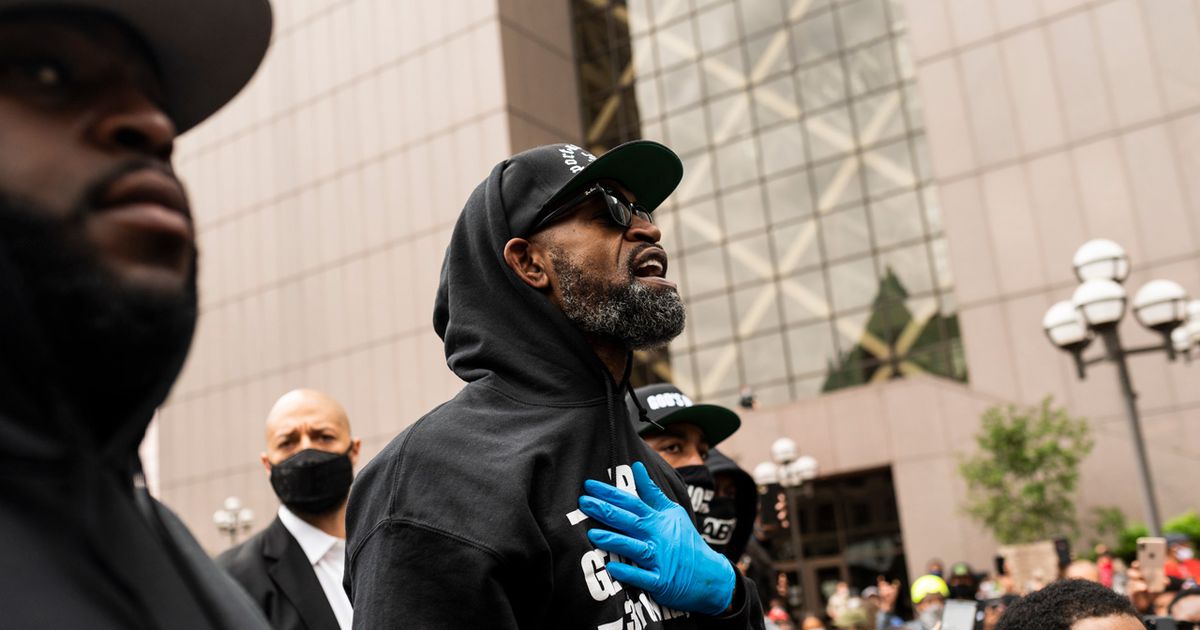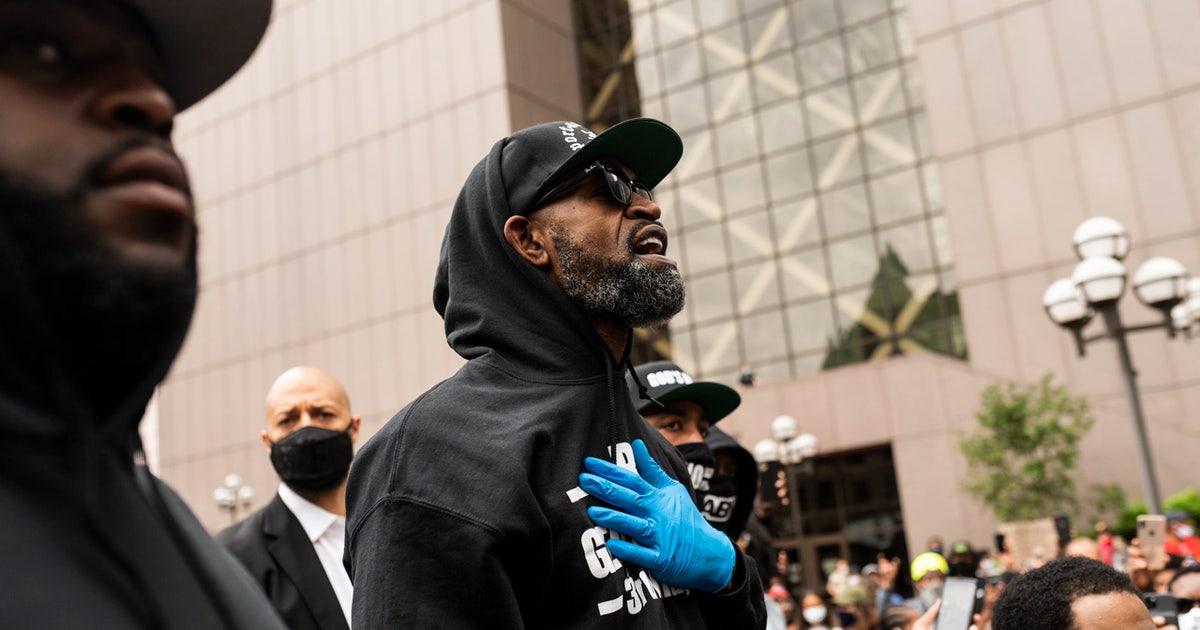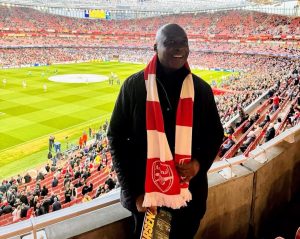Sports can’t truly heal society’s wounds — but it can play an important role


All along, we have been using the wrong word.
For generations, we have talked and thought about the power of sports to “heal” society’s wounds through periods of struggle.
— FOX (@FOXTV) May 31, 2020
And amid the most complex and tortured of modern times, a side-note to the overriding story of America’s current pain and discontent is that sports is not always a healer, much as we would like it to be.
There are times when it can be a soother; sports partly soothed the United States in the aftermath of the September 11 attacks, when the New York Yankees found themselves never more loved than in the World Series that came so soon after the falling of the Twin Towers.
The patriotic return of baseball didn’t truly heal New York. It didn’t fix it. The gravity of what happened was such that nothing could do that. Sports made people feel better, and there is immense power in simply that.
But sports can’t do everything. Some things are too vivid and too present to be drowned out.
The ongoing division in American life and the way historic issues are stretching society at its very seams? Yes, that’s one of those things.
“We will always persevere. That’s who we are as people, as a family and that’s who I’m raising my daughters to be as young women.” — @GregJennings pic.twitter.com/qTtB4W3zXk
— Herd w/Colin Cowherd (@TheHerd) June 1, 2020
America is hurting, and, in some places, burning. These are the kind of days that become the subject of documentaries and books, that go down in our history, that cause your grandchildren to ask if you were there and what you remember. These are rare days, not for the right reasons, but for vital ones. Wherever your political leaning lands, things are not good. There is pain and strife and division and anger, and it is everywhere we look.
Sports’ role right now is not to be a solution, but to be part of the discussion.
In that sense, American athletics has not held back. Literally hundreds of athletes have added their voice, with insight and perspective, far too many to list. Perhaps the most heartfelt of all was from former NBA player Stephen Jackson, a close friend of George Floyd, whose neck was kneeled on by a Minneapolis police officer for several minutes before he died last week in an incident that was the catalyst for a weekend of unrest.
“Imagine we’re playing 1-on-1 and I know the ref. Every time you drive to the basket, I’m hacking you and he ain’t calling nothing. That’s how black people feel. We keep trying to be successful but you keep fouling us and we can’t get our 2 free throws.”
—@DaTrillStak5 pic.twitter.com/yHuyDyAqa9
— UNDISPUTED (@undisputed) June 1, 2020
“Imagine we are playing one-on-one and I know the ref,” Jackson, who made an impassioned speech at an emotional press conference in Minneapolis on Friday, told Undisputed on FS1. “Every time you drive to the basket, I’m hacking you and he ain’t calling nothing. That’s how black people feel.”
There was Michael Jordan, breaking free from the play-it-safe political approach that he took for most of his career to take a stand.
Statement from Michael Jordan: pic.twitter.com/lWkZOf1Tmr
— Jordan (@Jumpman23) May 31, 2020
There was the Boston Celtics’ Jaylen Brown, who drove 15 hours to Atlanta to peacefully protest.
There was Miami Dolphins coach Brian Flores, with words of clarity and wisdom, as he implored society to seek ways to “open our hearts and minds to a better way of communicating.”
Statement from Head Coach Brian Flores. pic.twitter.com/dJOdHHSvNT
— Miami Dolphins (@MiamiDolphins) May 29, 2020
These men are just a small example of those who know what it is like to be black in America. They were joined by others who do not, but whose message resonated regardless, like Alabama head coach Nick Saban, who pleaded for “love” and “unity” …
— Alabama Football (@AlabamaFTBL) May 31, 2020
… and Clemson quarterback Trevor Lawrence, 20 years old, who said he would “side with brothers that … continuously deal with things I will never experience.”
I’m siding with my brothers that deal, and continuously deal, with things I will never experience. The injustice is clear.. and so is the hate. It can no longer be explained away. If you’re still “explaining” it – check your heart and ask why.
— Trevor Lawrence (@Trevorlawrencee) May 29, 2020
Each of the four major leagues carried articles on the issue, prominently featured on their websites. Commissioners Adam Silver and Roger Goodell both released statements that came from the heart.
— NFL (@NFL) May 30, 2020
My working world is sports, and it is through that lens that this article peers. There are many writers that will tackle the underlying problems, on both sides, and we should all read them. That is how sports is handling it — no more, no less.
What is happening in America, amid a discussion so all-encompassing it has even overshadowed an historic pandemic, is a reminder of what sports can do, and what it can’t. Sports has the force to uplift, like in New Orleans after Hurricane Katrina, because, at its core, it is about relationships; with teammates, coaches, opponents, even the fans.
But just like it couldn’t clear the wreckage or bring back the dead back then, it can’t solve society’s troubles here.
.@MarcellusWiley reacts to the protests across the country following the death of George Floyd
“This is a situation that has come to a head once again in this country as an ugly reminder that the playing field still isn’t leveled as promised and when will we get to that day?” pic.twitter.com/GcSsZ1RwMg
— Speak For Yourself (@SFY) June 1, 2020
That doesn’t make it an irrelevance. Sports in today’s American life is a source of inspiration, a self-contained economic sector, a deeply-ingrained form of cultural entertainment and a treasure trove of diverse societal role models.
It also has the ability to serve as a guilt-free distraction when one is most needed, and it can numb us to difficult times. Perhaps though, this is not a time for distraction, but instead to stay in the moment, and see what we can figure out how to do better.







